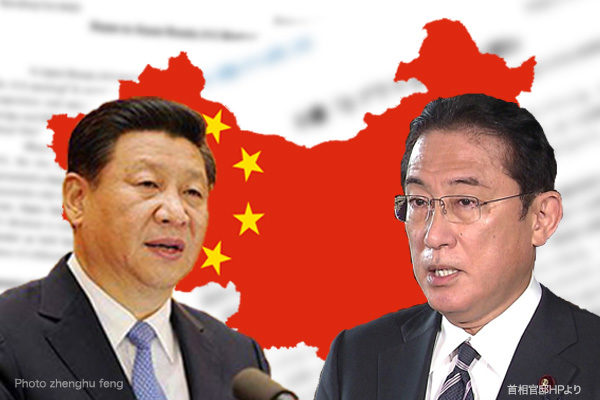“On human rights issues regarding Uyghur, Tibet, Mongolians and Hong Kong, I would assert what should be asserted and strongly call for responsible actions,” he said as president of the ruling Liberal Democratic Party in his general election campaign promise earlier this year. “My cabinet will protect human rights and other universal values at all costs,” he told the House of Representatives Budget Committee on December 13. “Japan will firmly raise voice against any serious human rights situation,” he said at the Summit for Democracy.
Prime Minister Fumio Kishida sent these messages domestically and internationally. Given the beautiful messages, Japan must join the United States, Britain, Australia, Canada and others to declare a diplomatic boycott of the Beijing Winter Olympic Games.
Kishida’s invisible will
The international community has accused the Chinese Communist Party’s human rights crackdown on Uyghurs, Mongolians and Tibetans as genocide, but the situation has yet to be improved. Rather, the CCP has enhanced surveillance to cover even abroad. CCP agents constantly surveil and intimidate people of the above-cited three ethnic groups who work or study in Japan, taking their families in China hostage to force them to snitch. At least seven Japanese citizens have been arrested and detained long in China, with no justifiable reasons specified.
In addition to human rights violations, the CCP has continued attempts to use military power for changing the status quo. Four armed Chinese government ships have effectively been stationed in Japanese waters around the Senkaku Islands. Chinese and Russian naval fleets circumnavigated Japan, conducting provocative military drills. It is natural for Japan to consider all such Chinese behaviors in handling the Beijing Olympics.
In the face of the Olympics, Japan should strongly declare to be a powerful member of the camp that protects freedom, democracy and international law. The time has come for Japan to stand against Chinese brutalities in coordination with other countries with which Japan shares values.
Nevertheless, the will of the Kishida administration is extremely difficult to understand. Even as of December 13, Kishida told the National Diet that he would make a “comprehensive decision” on how to deal with the Beijing Olympics.
Japan’s raison d’etre is put to test
The Global Times under the auspices of the CCP’s organ People’s Daily has concluded that Japanese politicians are satisfied only with empty attacks on China and have no courage to take any aggressive action. The Kishida administration remains unable to launch even empty attacks. Any belated decision on the Beijing Olympics amounts to indecision. Does Japan feel too constraint in China to make a decision to protect important values?
Japan will have no raison d’etre if it fails now to raise an objection to China that runs counter to all Japanese values and national interests. Be more confident of Japan’s national characteristics that cherish humans and observe international rules. Strengthen relations with the United States and share values with Western countries. In the biggest battle in centuries, show the flag against the values of the Chinese empire.
Yoshiko Sakurai is a freelance journalist and President, Japan Institute for National Fundamentals.


